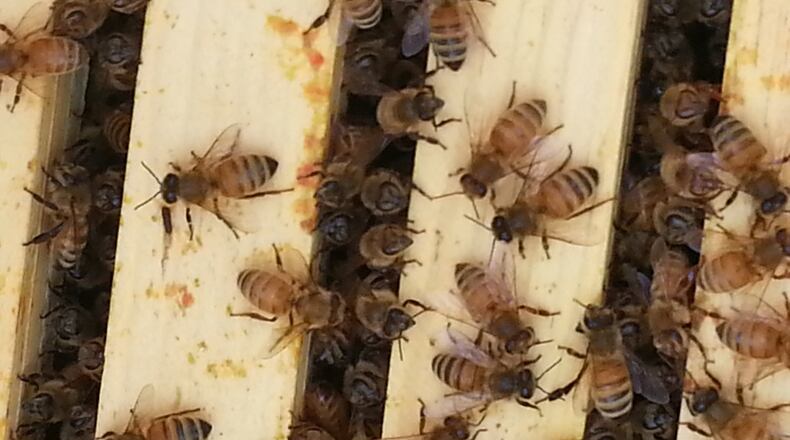The legislation, approved 9-0 by the panel, next will go to the city’s planning commission before heading to the city council.
When someone applies to have hives, neighbors within 100 feet will receive letters, informing of the request.
Jeff Gambrell, a city resident who is a member of the commission, said the recently amended legislation does several things, some of which are different from earlier proposals.
The hive-to-land ratio has been decreased from before, because, “there’s a lot of concern from the beekeepers that you really do not need a lot of land” to provide for bees, Gambrell said. “Bees will travel up to 12 miles to find sources of pollen.”
There will have to be at least one sign on properties with bee hives alerting people to their presence.
“Even through some kids may not be able to read the sign, it’s still there for protection of the owner, in case somebody wanders onto the property and gets stung,” Gambrell said.
Another change was an amendment to a part that allowed neighbors of such property owners to block hives if they could prove they have severe medical reactions to bee stings. Under the new proposal, those notes would have to come from allergists, because bee proponents, including a Cincinnati physician, said it would be too easy to get a doctor’s note saying someone is allergic — about as easy as it is to get a doctor’s note for work, asking a patient be excused for the day because they are sick.
“Everyone is allergic to bee venom, it’s just that your body reacts differently,” Gambrell said. “Even if you get stung by a wasp, and have a really terrible reaction to that, wasp venom is different from honey-bee venom, so you will not necessarily react the same to each.”
Larry Bagford, with the city’s planning department, said under the proposed legislation, unregistered hives, or ones that are abandoned, would be zoning violations. Currently, it is a health violation. Hives that are not properly maintained also would be zoning violations.
Don Popp is the owner of Don Popp’s Honey Farm in Milford Twp., about two miles north of Darrtown, and is a bee inspector. He has said human-managed hives are important — without them, there would be no honey bees in Butler County.
About the Author
